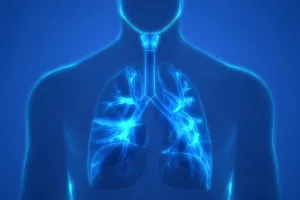
Academic writing for clarity and meaning 
Academic writing should focus on clarity and meaning, rather than complexity. This article provides tips on how to achieve this goal. ▼
ADVERTISEMENT
Course Feature
![]() Cost:
Cost:
Free
![]() Provider:
Provider:
Edx
![]() Certificate:
Certificate:
No Information
![]() Language:
Language:
English
![]() Start Date:
Start Date:
9th Dec, 2019
Course Overview
❗The content presented here is sourced directly from Edx platform. For comprehensive course details, including enrollment information, simply click on the 'Go to class' link on our website.
Updated in [April 29th, 2023]
Academic Writing for Clarity and Meaning is a two-week course designed to help tertiary students and contributors to academic publications articulate complex ideas with clarity and meaning.
The first week of the course focuses on developing a structured writing process, appropriate for the intended readership. Topics covered include when to write, the importance of a golden thread, the main principles of drafting a research report, and different abstract patterns.
The second week zooms in on the principles of paragraph and sentence construction. Participants will learn ways of writing that enhance clarity and engage readers.
By the end of the course, participants will have a better understanding of how to write with clarity and meaning, and be able to apply this knowledge to their own writing.
[Applications]
The application of this course can be seen in the ability of students at tertiary institutions to write with clarity and meaning. They will be able to structure their writing process in a way that is appropriate for their intended readership. Additionally, they will be able to construct paragraphs and sentences that enhance clarity and engage their readers. Furthermore, they will be able to write abstracts that are effective and concise.
[Career Paths]
1. Academic Writer: Academic writers are responsible for creating content for academic publications, such as journals, magazines, and books. They must be able to research topics, write clearly and concisely, and adhere to the publication's style guide. Academic writers must also be able to work with editors and other writers to ensure that the content is accurate and meets the publication's standards. The demand for academic writers is increasing as more publications are created and the need for quality content increases.
2. Content Editor: Content editors are responsible for reviewing and editing content for accuracy and clarity. They must be able to identify errors in grammar, spelling, and punctuation, as well as ensure that the content is consistent with the publication's style guide. Content editors must also be able to work with writers to ensure that the content meets the publication's standards. The demand for content editors is increasing as more publications are created and the need for quality content increases.
3. Copywriter: Copywriters are responsible for creating content for marketing and advertising purposes. They must be able to research topics, write clearly and concisely, and adhere to the client's style guide. Copywriters must also be able to work with editors and other writers to ensure that the content is accurate and meets the client's standards. The demand for copywriters is increasing as more businesses are created and the need for quality content increases.
4. Technical Writer: Technical writers are responsible for creating content for technical documents, such as user manuals, product specifications, and software documentation. They must be able to research topics, write clearly and concisely, and adhere to the publication's style guide. Technical writers must also be able to work with editors and other writers to ensure that the content is accurate and meets the publication's standards. The demand for technical writers is increasing as more technical documents are created and the need for quality content increases.
[Education Paths]
1. Bachelor of Arts in English: A Bachelor of Arts in English is a great degree path for those interested in developing their academic writing skills. This degree focuses on the study of literature, language, and writing, and provides students with the opportunity to develop their writing skills in a variety of contexts. Additionally, this degree is becoming increasingly popular as more and more employers are looking for candidates with strong writing skills.
2. Master of Arts in Professional Writing: A Master of Arts in Professional Writing is a great degree path for those looking to specialize in academic writing. This degree focuses on the development of writing skills for a variety of professional contexts, such as business, journalism, and technical writing. Additionally, this degree is becoming increasingly popular as more and more employers are looking for candidates with strong writing skills.
3. Doctor of Philosophy in Rhetoric and Composition: A Doctor of Philosophy in Rhetoric and Composition is a great degree path for those looking to specialize in academic writing. This degree focuses on the study of rhetoric and composition, and provides students with the opportunity to develop their writing skills in a variety of contexts. Additionally, this degree is becoming increasingly popular as more and more employers are looking for candidates with strong writing skills.
4. Master of Science in Technical Writing: A Master of Science in Technical Writing is a great degree path for those looking to specialize in technical writing. This degree focuses on the development of writing skills for a variety of technical contexts, such as engineering, computer science, and medicine. Additionally, this degree is becoming increasingly popular as more and more employers are looking for candidates with strong writing skills.
Course Provider

Provider Edx's Stats at AZClass
Discussion and Reviews
0.0 (Based on 0 reviews)
Explore Similar Online Courses

Learn about Chronic Obstructive Pulmonary Disease (COPD)

The Top 24 Guitar Hacks & Tips for Beginners

Python for Informatics: Exploring Information

Social Network Analysis

Introduction to Systematic Review and Meta-Analysis

The Analytics Edge

DCO042 - Python For Informatics

Causal Diagrams: Draw Your Assumptions Before Your Conclusions

Whole genome sequencing of bacterial genomes - tools and applications

Systematic Literature Review : A Practical Guide

Writing & Publishing a Research Paper - Research Paper Guide

Research writing using Citavi - Part 2
 Related Categories
Related Categories
 Popular Providers
Popular Providers
Quiz
 Submitted Sucessfully
Submitted Sucessfully
1. What is the main focus of the first week of the course?
2. What is the main focus of the second week of the course?
3. Who is the course aimed at?


Start your review of Academic writing for clarity and meaning